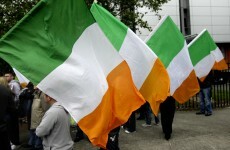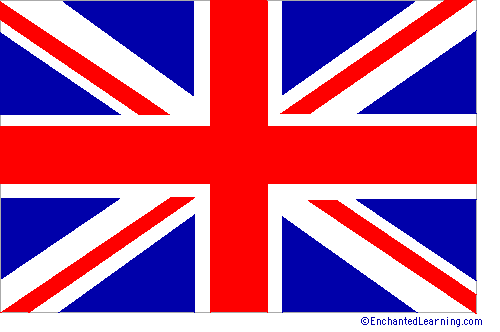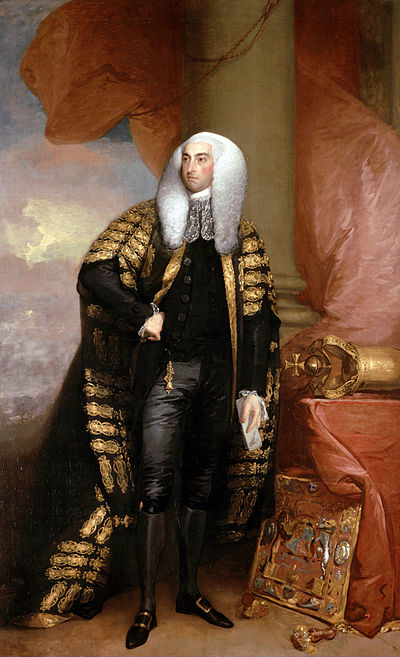 Chapter XI: Under the English Heel II:
Chapter XI: Under the English Heel II:
Rising and Falling: Emancipation, Starvation and Emigration
Just a quick note, in case anyone wonders why the subtitle for this, and subsequent chapters? Well, up to now it’s certainly been a case of Ireland having been under the English heel for over seven hundred years, but for all that, nominally we remained a free country, or at least a separate country. The first king to proclaim himself King of Ireland as well as England was Henry VIII, this claim ratified by the Crown of Ireland Act passed by the Irish Parliament in 1541, but prior to that the monarch had always been in control of the Lordship of Ireland. Even when incorporated as the Kingdom of Ireland, we had our own laws, our own Parliament, our own identity. From the start of the nineteenth century till well into the twentieth, we were part of the United Kingdom, subservient to the King or Queen of England, and so it must have felt like that boot was pressing down even harder on our necks. This, therefore, would be seen as the second, and closer phase of that oppression, thus the title.

Anyway, on we go. One of the things known now around the world which only came into being after the 1801 Act of Union was the recognised symbol of the British empire, the Union Jack (or to be more precise, Union Flag: it’s technically only known as the Union Jack when flown at sea, though this seems to have been ignored or forgotten, or done away with altogether) as the crosses of England (St. George), Scotland (St. Andrew) and now Ireland (St. Patrick) were intermingled in the flag of the new United Kingdom of Britain and Ireland, usually known as just the United Kingdom. I would personally question why a red X was chosen as being representative of the Irish, as we have always been associated with the colour green, but then, the English were hardly going to have what would be seen as a Catholic nationalist symbol on their precious flag, now were they?
Under the provisions of the Act of Union, several major changes were instigated, the most far-reaching of course being the dissolution of the Irish Parliament. Whereas members previously reported to Dublin Castle, now they were summoned to Westminster to sit in the joint UK Parliament. As well as this, the Irish Army was absorbed into the British Army and the Church of Ireland was merged with the Church of England (though perhaps oddly, the Church of Scotland was allowed to remain as it was, perhaps because it was already a strongly Protestant nation).
The Prime Minister at the time, William Pitt the Younger, had managed to get the Act passed on the basis of, among other inducements, the promise of Catholic emancipation, where Catholics would be again allowed to sit in Parliament, but the king, George III, was against this, believing such a concession would violate the oath he had taken at his coronation, and so in protest at being blocked by the Crown Pitt had to resign. Therefore only months after he had pushed the Act through, Pitt was gone and a new Prime Minister led the government. The chances of Catholics being looked on fairly was lost.
And yet, even with this loss, Catholics in Ireland were broadly in favour of union. Seems odd today, but I guess when you remember that they had no say in the politics of their own country, that it was their “own” (Protestant) Parliament in Dublin which had levelled the cruel Penal Laws at them, that the whole institution of Dublin Castle was seen as corrupt and self-serving, and that joining with England might afford them some measure of royal protection, maybe not so odd. In the end, it mattered little, as it often does, to the ordinary man, who got oppressed just as much by the new government as he had by the old, and still had to struggle to make his living. There was no improvement in his working or living conditions, he still had basically no rights, and to quote Roger Daltrey, it really was a case of “meet the new boss, same as the old boss.”
I personally find it odd to discover that many Protestants were against Union. I would have thought the idea of being joined to the land of their forefathers would have appealed, but no. It seems Protestants believed that London would go easier on Catholics than had Dublin, and they were right. Of course, their real fears were rooted in the need to give up their power; decisions that had been up to now made by the Protestant Parliament in Dublin would henceforth be made in London, leaving them with little actual say in the running of the country. One Protestant who was very much in favour of, and doggedly determined to realise the passing of the Act of Union was the Earl of Clare.
 John Fitzgibbon, 1st Earl of Clare (1748 - 1802)
John Fitzgibbon, 1st Earl of Clare (1748 - 1802)
His father had been born a Catholic but like some Irishmen had taken the oath to the king and converted to Anglicanism, principally to be able to pursue a career as a lawyer (and presumably to assure his son of a decent life in society) and like many lawyers he scraped a living and barely got by. Like hell. He made a pile, as would his son, who was appointed Attorney General in 1783 and then Lord Chancellor of Ireland in 1789, moving through the ranks of the peerage until he attained the earldom of Clare in 1795. A fierce rival of Henry Grattan, he utterly opposed any rights for Catholics and only supported the 1793 Irish Catholic Relief Act because as a member of the government he was expected to, and did not fancy going against the party line. However he strongly supported the Act of Union, essentially breaking with the hardline Protestants with whom he had been in line up to then, and made an impassioned speech almost a year before the Act was passed into law:
"I hope and feel as becomes a true Irishman, for the dignity and independence of my country, and therefore I would elevate her to her proper station, in the rank of civilised nations. I wish to advance her from the degraded post of mercenary province, to the proud station of an integral and governing member of the greatest empire in the world."
Fitzgibbons’s contention was that without the Act of Union, Irish Catholics would rise up and overthrow their masters. Why this was believed I don’t know, as he was speaking only a few short years after it had been quite clearly proven the Irish, while they might mostly have the stomach and heart for such a rebellion, had no real means of achieving it. Perhaps the Protestants, remembering the victories the United Irishmen had won, and the atrocities committed by them, or even thinking back to the time of Cromwell, looked at each other in fear and doubt and asked, what if? So a combination really of scaremongering (not hard to achieve with the dread spectre of 1798 hovering over them) and bullying, along with the old standard, enlightened self-interest, convinced the Protestants that union was the way to go.
It seems to have been Fitzgibbon who put the idea in the king’s head that granting any sort of relief or concessions to Catholics would violate his oath. King George III was not known to be an astute or clever man - he did, after all, suffer mental illness later in his life - but once an idea was planted in his head he stuck to it, without questioning its merit. So it was with the purported breaking of his oath. He would not be convinced otherwise by Pitt, which led to the resignation of the Prime Minister and the passing of the Act without any concessions to Catholics.
In this respect it could probably argued that, were his name better known and recognised in history, the Earl of Clare might indeed have gone down in Irish history as a man deserving of almost as much hatred as Oliver Cromwell, being the one who almost single-handedly prevented the relaxation of laws against Catholics and allowed them to be pulled into union with Britain under circumstances they had not expected. In other words, he was the broker of the reneging on the promise of Catholic emancipation, even if it was the word of His Majesty that stopped it in its tracks. As we would say here, a real fu
cking cu
nt.
The Rising Redux - Ireland Tries Again
A mere two years after Ireland had been forcibly joined to England to form the United Kingdom, Irish nationalists were again trying to secure its freedom. No doubt seeing the failure of the 1798 rising as something to build on and improve rather than something to discourage them from further attempts, the Irish would again seek the aid of the French in their bid to overthrow their oppressors, and again this aid would fail to come through. Realising the fears of Protestants, and allowing eerie truth to ring in the stentorian warnings of John Fitzgibbon prior to unification, Catholic Irish freedom fighters would show the Ascendancy that they were not in any way giving up the struggle, and this would continue to be the case through the next two centuries. Ironically, freedom for Ireland would eventually be won not through force of arms but by negotiation and a sense of inevitability, with the backdrop of the horror of the war to end all wars giving new perspective, but it would still take over another hundred years.
 Robert Emmet (1778 - 1803)
Robert Emmet (1778 - 1803)
The architect of the first rising of the nineteenth century would be Robert Emmet, brother to Thomas, who had fought in the 1798 rebellion, and a contemporary of Theobald Wolfe Tone, one of the martyrs of the rising. Robert and Thomas’s family were Protestants, members of the Ascendancy, and very financially comfortable, their father the physician to the Lord Lieutenant of Ireland. He though became interested in the cause of American independence, and from there that of Irish freedom, and his sons carried his beliefs into - eventually tragic but historical - action, both fighting for their country and against their religion and king. The founder of the United Irishmen, William Drennan, also visited the Emmet house, so it must have been seen as a hotbed of Catholic revolt.
With the defeat of the 1798 rising, and the exile of his elder brother, Robert and William Putnam McCabe set about re-establishing the United Irishmen, this time under a strictly military footing, whereas before it had been a secret political society. Mere months after the end of the rising McCabe set out for France, to try to convince Napoleon to come to the aid of the Irish against the English, and Emmet joined him there in 1802. However they chose their time badly. France had already given aid to Ireland in the abortive 1798 rising, to its cost, and Napoleon was busy with other matters, like the wars which came to bear his name. So he said “Non, merci” and sent the Irish on their way.
One thing Emmet and McCabe did here, which I haven’t seen any reference to being attempted in the previous rising, was to reach out to English Jacobins, left-wing radicals who followed and espoused the principles of the French Revolution, and in particular the United Britons. It seems odd to me that the United Irishmen did not, as surely gaining support in the lair of the enemy would have helped their cause. And we know they travelled, to France anyway, in the hopes of securing allies there, so why not call in to see if they could rally the support of the United Britons? Were they around at that time?
Hmm. Quite strange. Seems they were formed around 1796 so should have been in some sort of shape for the rising, but maybe the rebels didn’t want to appeal to Englishmen for help? Or maybe they didn’t know of them. Whatever the reason, Robert Emmet and William McCabe did, and they tried to enlist their help. Unfortunately, as I’ve said before and will be chagrined but right to say again and again and again, Irish risings were always doomed. Robert Emmet’s is a particular case of poor planning, cowardice, misunderstandings, bad timing and bad luck, and really, in another world it would have been quite funny. Almost.
The first problem Emmet and McCabe ran into was with their intended allies in the United Britons (sometimes also called United Englishmen). As usual, there was a traitor in the camp, this time a man called Thomas Wright, but what his role, if indeed any, in the thwarting of the rebellion was I have no idea, nor whether he communicated information to London about the United Britons. Either way though, the Englishmen were arrested and Edward Despard, who had travelled to make the alliance, executed. This afforded Emmet a much frostier reception when he arrived in 1803 to lay plans and talk strategy. It seemed his enemies were either dispersed or no longer interested in fighting for Ireland.
Before we go any further, let’s look into this Despard character.
 Edward Despard (1751 - 1803)
Edward Despard (1751 - 1803)
As I research the history of Irish opposition to the English occupation of our shores, it’s been surprising to me how many of the most rebellious and hardline fighters have come from the Protestant class. Far from being just disgruntled Catholics trying to gain their rights and those of their countrymen, important figures in the first rising came from, as we saw, the aristocracy and the Ascendancy, Lord Edward Fitzgerald being the most prominent, but here too we find Robert and Thomas Emmet’s father, as well as both his sons, coming from a Protestant (and wealthy) background, yet taking up the cause for Irish independence. Another such was Edward Despard, born into wealth and privilege in County Laois and who in fact served in the American War of Independence, fighting alongside the legendary Admiral Nelson (not yet an admiral of course at that time), and was a member of the British Army for over twenty years. Not only was he a Protestant but also descended from Huguenots, and so you would think would have had reason to hate Catholics, at least historically, given their persecution and exile by Louis XIV.
The very opposite of a racist, he ensured land he oversaw in the Bay of Honduras in 1789 was equally available to black or white, rich or poor, man or woman. His even-handedness upset the local Baymen - loggers who kept slaves - whose protests were instrumental in having Despard recalled to London in 1790, dire warnings of a revolt among the slaves and recently-freed men convincing the British government that Despard was better back home than making waves abroad. Despard brought with him his black wife, to the scandal of London, though his position ensured it was not discussed openly or condemned. Perhaps strangely, perhaps not, it was in fact his own family who later denied the marriage, refusing to accept that Catherine had been married to their son. This may have had something to do with his fall from grace, in allying himself to the Irish cause, or it might have been an attempt to clean up, as they saw it, and as far as could be done, the family name.
Despard’s troubles followed him home, not only in the shape of the general - if restrained - disapproval of his marriage, but in lawsuits lodged by the Baymen against him for “unfair practices”. These landed him in a debtor’s prison for two years, where he passed the time reading. For those who have never read Dickens, a debtors’ prison, though certainly a prison, was not as harsh in terms of punishment as the likes of Newgate; though nothing was provided, unlike regular prisons, all could be purchased and if you had enough money you could be quite comfortable there. There was no treadmill, no rule prohibiting conversation among prisoners, no chains etc. What caught Despard’s interest most was Thomas Paine’s
The Rights of Man, and it set him thinking about the injustices across the water, in Ireland.
On his release he had to take refuge in revolutionary France, where his ideas about freedom hardened, and when he got back to Britain he joined the London Corresponding Society, a debating club, of all things, which was dedicated to reforming the British Parliament. The Seditious Meetings Act and the Treasons Act (1795) both made gatherings discussing or contemplating “seditious behaviour” a crime, one of treason, and Despard was arrested after a riot in Charing Cross, though later released. His luck ran out when he met Fr. James Coigly, arrived from Manchester. Coigly was a prominent figure in the United Irishmen, and had come to try to rally support for the uprising the next year. With Coigly he was arrested on the way back from France; Coigly was hanged and Despard was imprisoned for three years.
On his release, Despard again teamed up with agitators and United Irishmen in preparation for another rising, and an alleged plot to kill the king. He was arrested and tried for high treason in 1802. It was little more than a show trial, with hardly any evidence produced but the inevitable guilty verdict reached. Despite pleas for mercy from his wife and even from such a heroic figure as Nelson, and due to the fear that Britain was on the verge of its own rebellion, Despard and his compatriots were executed on February 21 1803.